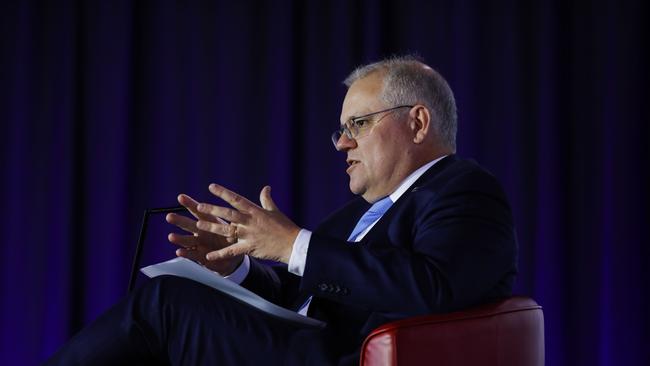After all this time, we still haven’t got a coronavirus recovery plan
The PM says we need hope, but what we need is the certainty of a national pandemic response.

When it comes to employment and income, new research from Roy Morgan shows that two-thirds of working Australians (67 per cent) have had “a change to their employment”.
Throughout July, a nationally representative cross-section of 3863 working Australians, using a combination of telephone and online interviews, were asked: “As a result of the coronavirus crisis, have you experienced any of the following employment changes?”
The changes canvased included being stood down, having reduced hours, a business that was closed or stopped completely, having no work at all, or being asked to work from home.
The biggest employment impact of COVID-19 is being felt in Tasmania, where the virus appears, for the moment at least, hardly present.
Despite this, nearly three-quarters of working Tasmanians (74 per cent) have had a change to their employment.
In South Australia, 57 per cent of working people have had a change to their employment, and in Western Australia and Queensland the number is 62 per cent. In NSW, 70 per cent reported change, and in Victoria, despite the severe lockdowns, the figure was only 71 per cent.
In the two largest states, the most common employment change for working people has been a move to home-based work. 30 per cent of working people in Victoria and 29 per cent in NSW are working from home.
Despite the current situation of adequate virus suppression in NSW, 22 per cent of those surveyed have had their working hours reduced, while in Victoria, that number is 21 per cent.
In both states, one in six working Australians say their businesses have slowed or stopped completely.
This week, in federal parliament, it seemed all anyone wanted to talk about was Victoria. Since the pandemic began, Premier Daniel Andrews has become the highest profile politician in the nation.
At our place, we observe with some bewilderment the long press conferences where absolute priority of airtime is given to Andrews. We watch with bemusement the intense level of national commentary on politics within our state.
While Andrews has his detractors — and these people seem utterly obsessed with bringing him down — the release of another Roy Morgan survey showed that in Victoria, at least, most people are behind his actions.
A snap poll was conducted on Tuesday and Wednesday this week.
It was taken at the halfway point of the lockdown, when Andrews had spoken of trying to extend his emergency powers, with a Victoria-wide cross-section of 2110 Victorians aged 18 and older.
Of course, no one in Victoria can be pretending to be having a fun time at the moment. The boredom of lockdown is indescribable; the days pass more slowly than anyone can imagine. The cruelty of separation from loved ones is keenly felt and anxiety about the future is high. Still, we don’t see there is any alternative but to do what we are asked, and to keep doing it, because it appears to be working.
So perhaps this is why of those surveyed, an overwhelming majority — 89 per cent — of Victorians say mask wearing should be compulsory, 76 per cent say schools and daycare centres in Melbourne should not be open to everyone, and 75 per cent say Melbourne’s restaurants, hotels, clubs and cafes should not be able to provide table service with proper social distancing.
Seventy-two per cent say the 8pm to 5am curfew in Melbourne should not be ended and 71 per cent say Melburnians should not be able to travel more than 5km from their homes.
If there is any consternation about the restrictions, it is about the ban on home visits.
Although 57 per cent of people support these bans, 43 per cent say Melburnians should be able to visit the homes of immediate family members.
This week, Scott Morrison said that what people wanted and needed right now was hope.
Hope, while nice, is not what we need the most. Hope won’t allow people to make decisions about their lives. Hope won’t help anyone forecast their business budget, and hope won’t help people decide whether to lay off workers or to keep them on for just a bit longer.
Certainty is what we need. Certainty is what all humans crave. Certainty can come only if and when our governments develop a national plan for pandemic response.
Yet after all this time, the only certainties we have is that our federation is dysfunctional, our governments cannot work together properly, the state and national border closures are treating people terribly, and there is still no plan, despite all the time our leaders have had to get one together.



An understatement I know, but this year there have been a lot of disappointments to process. In this pandemic, everyone is suffering in some way or another, and while Victorians are suffering, the hard data does not always match the public perception.